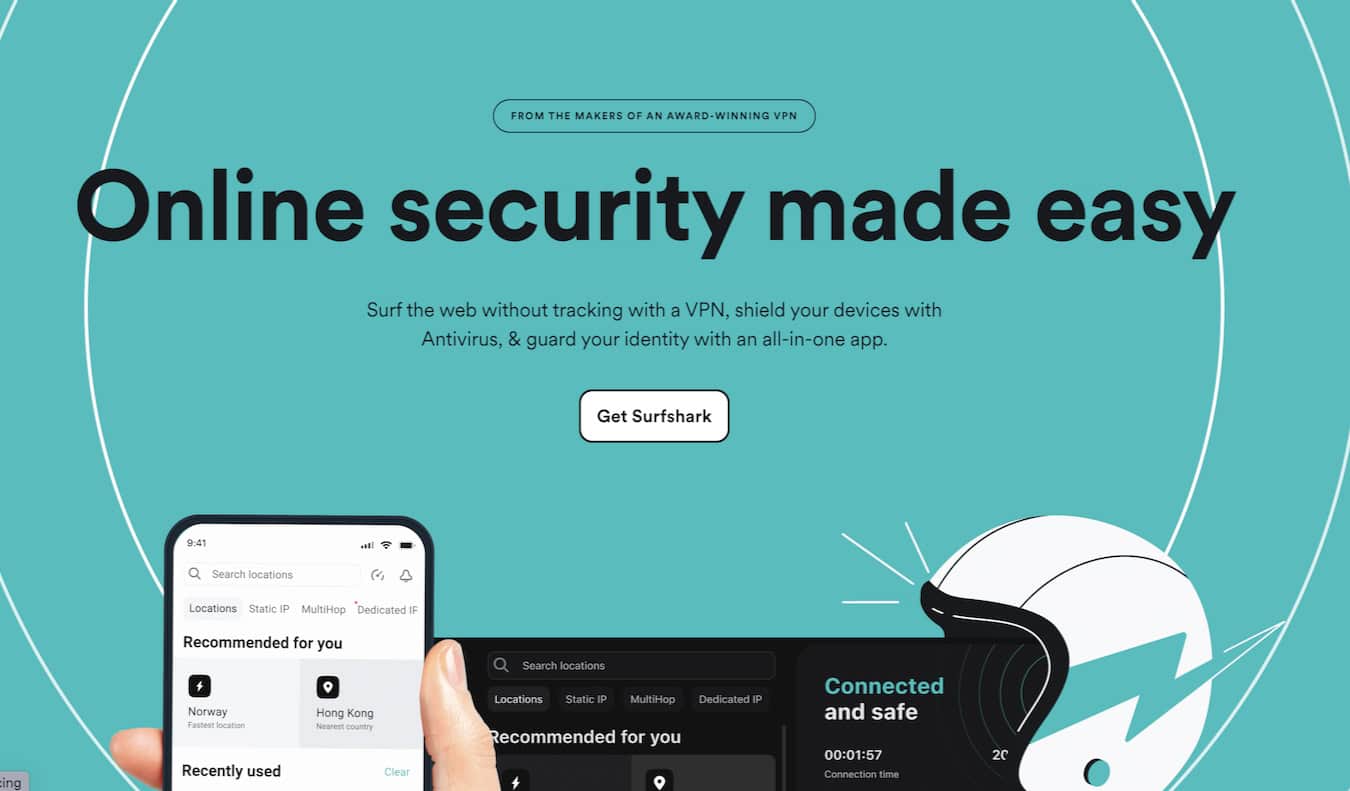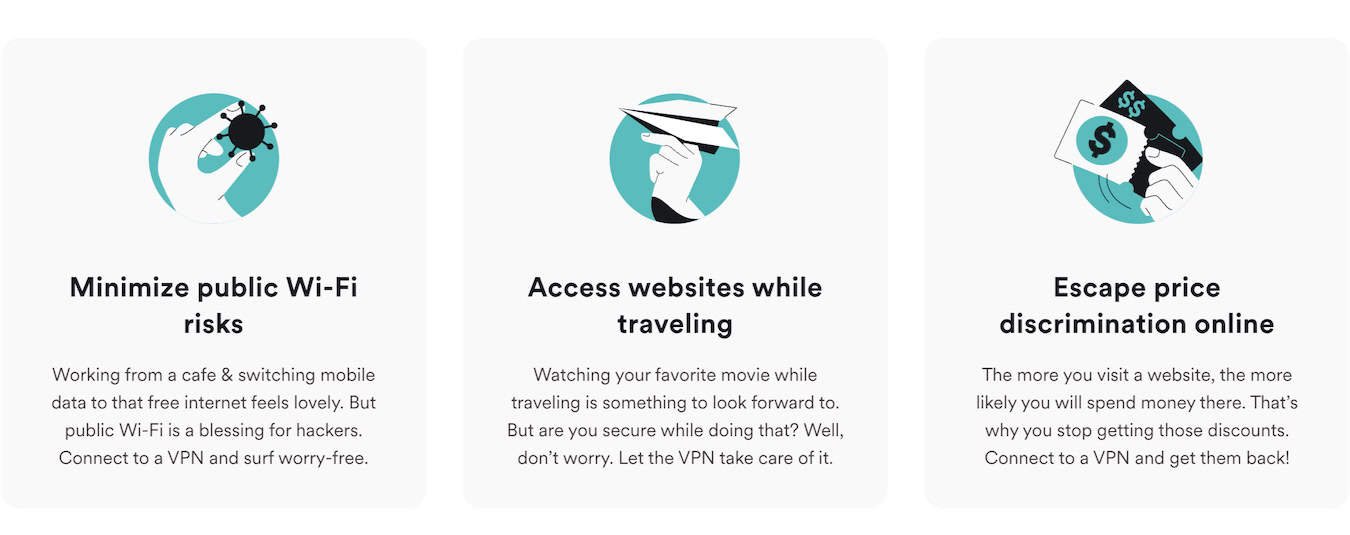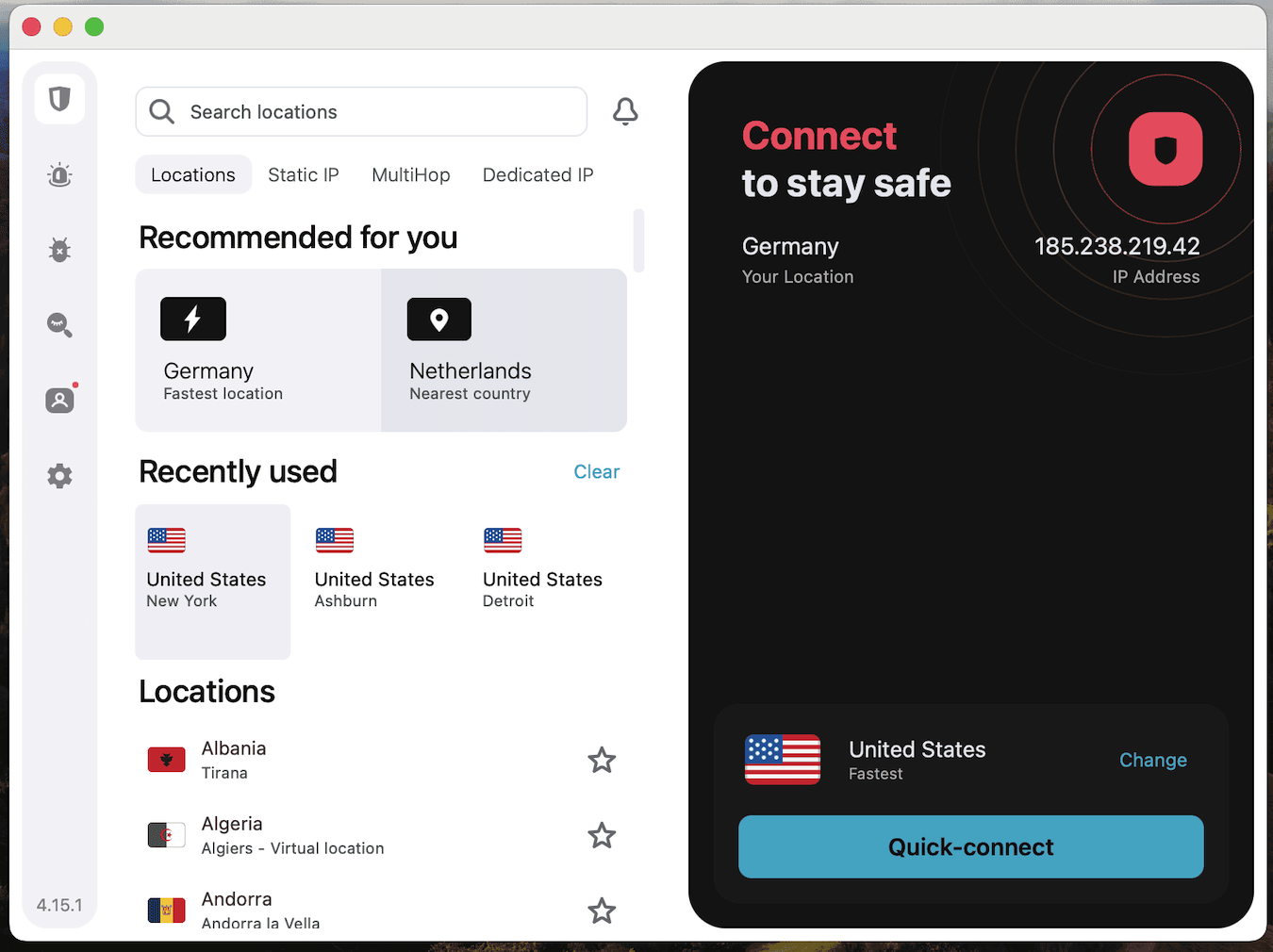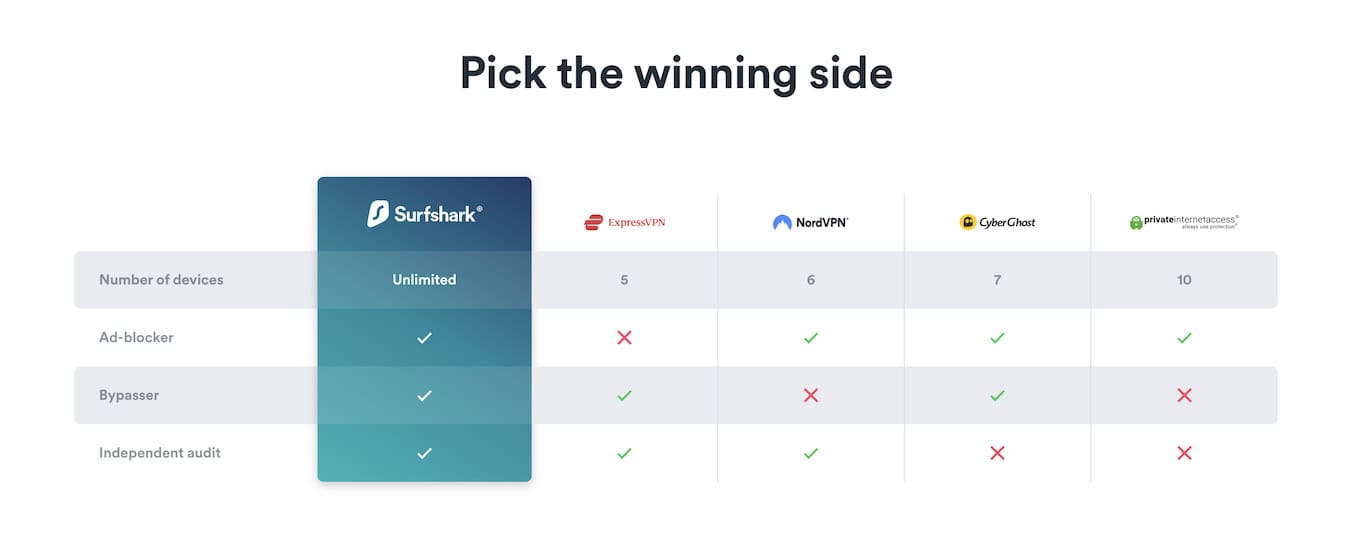The Best VPN for Travelers?

When I first started traveling the world, I didn’t have a laptop. I didn’t have a smartphone either. Nobody did. Back then, when you needed to use a computer, you went to an internet café, sent a few emails, and then went back to traveling.
Obviously, things have changed since that first big trip of mine.
These days, every traveler has a smartphone, laptop, or tablet (sometimes all three!). They can be super helpful for staying in touch with friends and family and making bookings for your trip as you go.
Personally, I always travel with a smartphone and laptop. I couldn’t run my blog without them. They also help me be a flexible traveler. I constantly change my plans while traveling, whether that’s to spontaneously meet up with friends, check out a new place I just found out about, or linger somewhere I particularly like. Having a phone or laptop ensures I can easily book as I go and make changes to my itinerary.
While these devices have drastically changed how we travel (and the travel industry as a whole, but that’s a topic for another day), they have some drawbacks that most travelers don’t think about.
The most notable? Safety.
Constantly connecting to unprotected Wi-Fi around the globe can leave your devices open to attack. And since we all use our phones to make purchases and do our banking, that means that our personal data is susceptible to attack.
Fortunately, there’s a super easy (and affordable) way to ensure that your devices and data are protected when you travel: A VPN.
What Is A VPN?
A VPN (Virtual Private Network) provides privacy and anonymity by creating a private network from a public internet connection. In short, they hide your online actions by encrypting your data and masking your IP address. This makes them virtually untraceable and prevents would-be thieves from accessing your private information.
While you might be traveling in Germany, your VPN can cloak your footprint so that it seems like you’re in the U.S., Thailand, or any other destination. This obscures your actions and makes it harder for would-be thieves to access your data.
One of the best and most popular VPNs is Surfshark.
What Is Surfshark?
Surfshark is one of the biggest and best VPN companies out there. Based in the Netherlands and launched in 2018, it’s a cybersecurity company that helps people stay in control of their digital lives. Using Surfshark helps you both manage and understand cybersecurity and cyber threats.
In addition to its VPN, which has over 3,200 servers across 100 countries, Surfshark also offers a suite of other security-related products perfect for travelers:
- Surfshark Antivirus – Keeps your devices free from viruses and malware.
- Surfshark Alert – Alerts you if your email address appears in breached online databases, monitors your credit cards, and checks password vulnerability.
- Surfshark Search – Allows you to search the web without leaving a digital footprint.
- Alternative ID – Generates a brand-new identity and an email to use online to keep your real ID hidden. Can also include a virtual phone number to help you avoid spam calls and increase your safety.
While some of these features might not feel necessary for you, I think every traveler should be using a VPN and antivirus software at the very least. Considering how much time we spend online, and how much sensitive data we share online, those two (at least for me) are no-brainers.
In 2022, 5.5 million malware attacks were detected across the world, and that number is only increasing. In the U.S. alone, the FBI recorded almost 1 million cybercrime complaints in 2023, up 10% from last year.
Plus, with the rise of AI, there are more and more concerns that it will be used to write malware. AI is already being used to write more convincing phishing emails. So, I expect that we may see even more viruses and internet security breaches in the future.
That means you need to be prepared.
Why Use a VPN?

Obviously, the main reason to use a VPN is security. A recent study showed that over 40% of respondents had their online security compromised when using public Wi-Fi (interestingly, the most common place it happened was the airport). With a VPN, you can safely and confidently use your devices abroad, both on mobile data and public Wi-Fi. But there are a couple of other reasons travelers might want to use a VPN: accessing geo-restricted websites and getting better prices.
Let’s talk about getting better prices first.
When booking online, prices for things like flights and hotel rooms can vary by country due to the exchange rate. For example, a hotel in the UK might cost $200 USD per night when booking from the hotel site’s U.S. website. That’s roughly 156 GBP.
However, if you book via the UK website, that hotel might only cost 146 GBP per night — 10 GBP cheaper. Sure, that’s not a ton, but saving a few bucks every time you book can add up, especially if you travel often or are booking a long trip.
Using a VPN to Save Money & Bypass Streaming
Once you install your VPN and are ready to book, you should always connect to the IP address of the destination you’re booking the hotel in. For example, if you’re booking a hotel in Thailand, you’ll have a higher chance of getting the lowest rate by connecting to Thailand’s IP address. A VPN can help you do that. (It’s as easy as hitting a button to choose what country you want to connect to.)
Here’s an example of me connecting to a U.S. IP address while I’m in Germany:

That said, always “shop around” using different VPN locations (chiefly ones from the EU and the UK) as those usually result in better deals when compared to the U.S.
Additionally, VPNs allow you to access geo-restricted content. Streaming services like Netflix, Hulu, and BBC iPlayer have different libraries based on location. With a VPN, you can connect to servers in different countries, bypassing these restrictions and accessing a broader range of content. This is useful for expats and travelers who want to access content from their home country while abroad. Even when on the road, sometimes you just need a taste of home by catching up on your favorite show. A VPN can let you do that.
Pros and Cons of Surfshark
Surfshark is one of the biggest and best VPN companies out there, offering a host of perks as well as three different tiers for pricing, based on your needs.
Here’s a quick look at what I like about them, as well as where they have room for improvement:
PROS
- Keeps your digital freedom while traveling to internet-restricted countries
- Provides quick and secure access to blocked or censored material
- Private & safe access to local content everywhere in the world
- Watch sports online securely with no buffering or annoying pop-ups
- Allows usage on an unlimited number of devices
- Stop ads from loading to save data and boost speeds
- Auto-connection option so you don’t have to remember to enable it
- 24/7 live chat and support
- Independently verified no-logs policy (meaning they don’t record your data)

CONS
- It’s a paid service
- Prices increase dramatically after a 24-month introductory period
Who Is Surfshark For?
If you’re connecting to the internet in a public place, Surfshark is for you. Whether you’re working remotely from a café or booking your next hostel while on the road, that’s everyone at some point. While VPNs used to be used mainly by corporations, now over 30% of Internet users worldwide use a VPN, and that number is only growing. The rise of remote work along with the rise of cyber threats means that cybersecurity is more important than ever.
In short, I think every traveler should be using a VPN and antivirus software. It’s the bare minimum you need in terms of security.
VPN Frequently Asked Questions
Are VPNs legal?
Yes, VPNs are legal in most countries. However, some countries restrict or ban their use. It’s important to check the local laws for the country you’re traveling in. For example, they are banned in North Korea and Belarus, and only certain government-approved VPNs can be used in India, China, and Russia (which kind of defeats their purpose to be honest).
Fortunately, however, in the majority of places you visit, you’ll be allowed to use your VPN freely.
Do VPNs slow down your internet connection?
VPNs can sometimes slow down your internet connection due to the encryption process and the distance to the VPN server. However, Surfshark is optimized to minimize speed loss. I haven’t see any noticeable difference using it. (Keep in mind that speeds may vary depending on your location and usage.)
Is using a free VPN safe?
While free VPNs do exist, they come with limitations, such as data caps, slower speeds, and fewer server options. Some may also log your data and sell it to third parties.
If you want to use a free VPN just to test it out briefly, that’s fine. But for long-term use or while traveling, it’s always best to use a reputable paid VPN service for better security and privacy.
I always use a VPN when I travel. I think every traveler should do the same. While it may not have been necessary in the past, we do so much online these days that it’s foolish to leave your data unprotected.
When it comes to VPNs and online safety, I think Surfshark has a great suite of products that caters to travelers of all stripes, from the casual holidayer to the digital nomad. They offer a ton of perks, have great customer service, and are super affordable. Prices do jump after around two years, which I don’t love, but it still won’t break the bank.
Don’t skimp on your safety. Use a VPN like Surfshark the next time you travel. Because it’s always better to be safe than sorry.
Click here to sign up for as little as $2.19 USD per month!
Book Your Trip: Logistical Tips and Tricks
Book Your Flight
Find a cheap flight by using Skyscanner. It’s my favorite search engine because it searches websites and airlines around the globe so you always know no stone is being left unturned.
Book Your Accommodation
You can book your hostel with Hostelworld. If you want to stay somewhere other than a hostel, use Booking.com as it consistently returns the cheapest rates for guesthouses and hotels.
Don’t Forget Travel Insurance
Travel insurance will protect you against illness, injury, theft, and cancellations. It’s comprehensive protection in case anything goes wrong. I never go on a trip without it as I’ve had to use it many times in the past. My favorite companies that offer the best service and value are:
Want to Travel for Free?
Travel credit cards allow you to earn points that can be redeemed for free flights and accommodation — all without any extra spending. Check out my guide to picking the right card and my current favorites to get started and see the latest best deals.
Need Help Finding Activities for Your Trip?
Get Your Guide is a huge online marketplace where you can find cool walking tours, fun excursions, skip-the-line tickets, private guides, and more.
Ready to Book Your Trip?
Check out my resource page for the best companies to use when you travel. I list all the ones I use when I travel. They are the best in class and you can’t go wrong using them on your trip.

